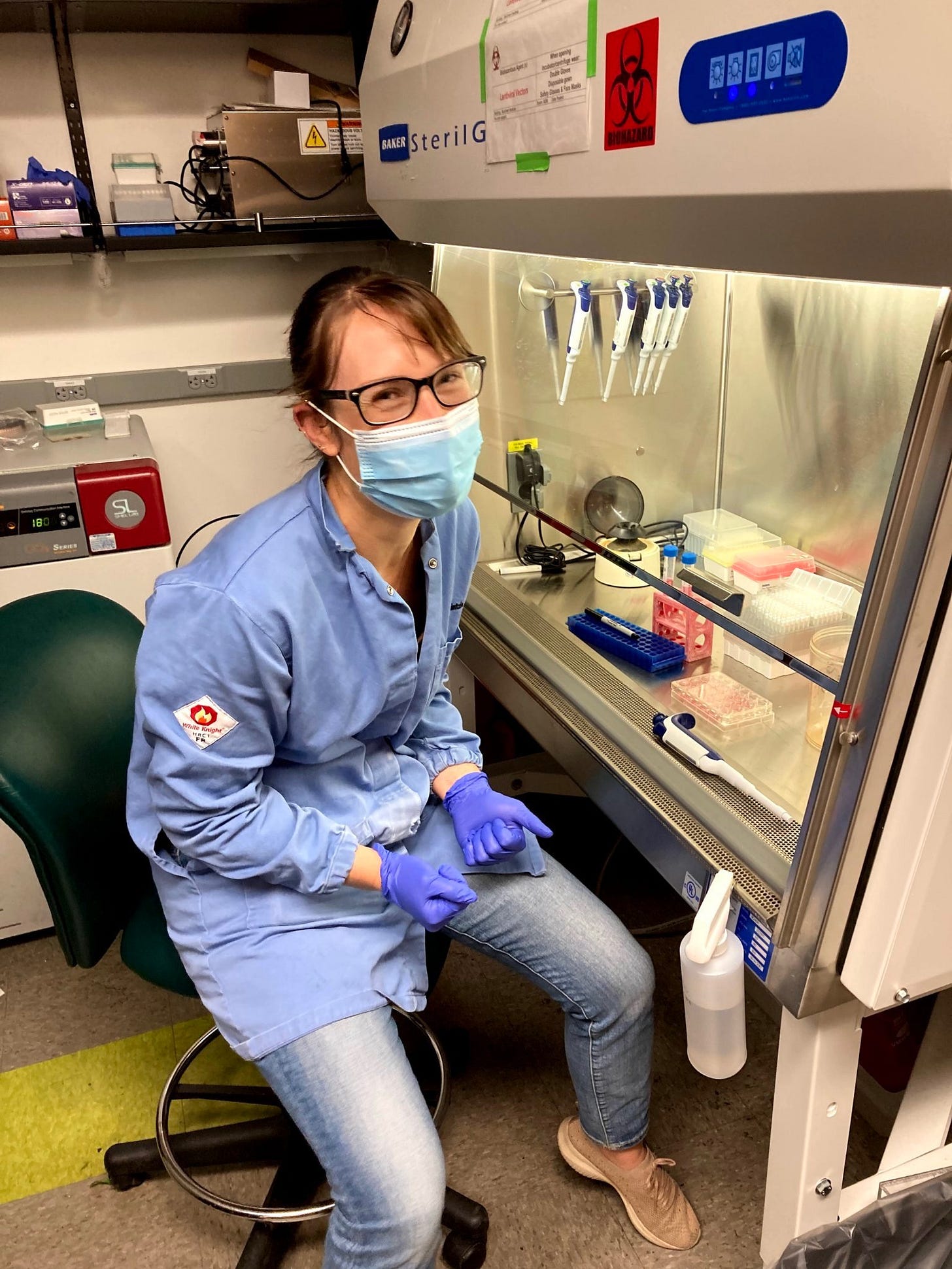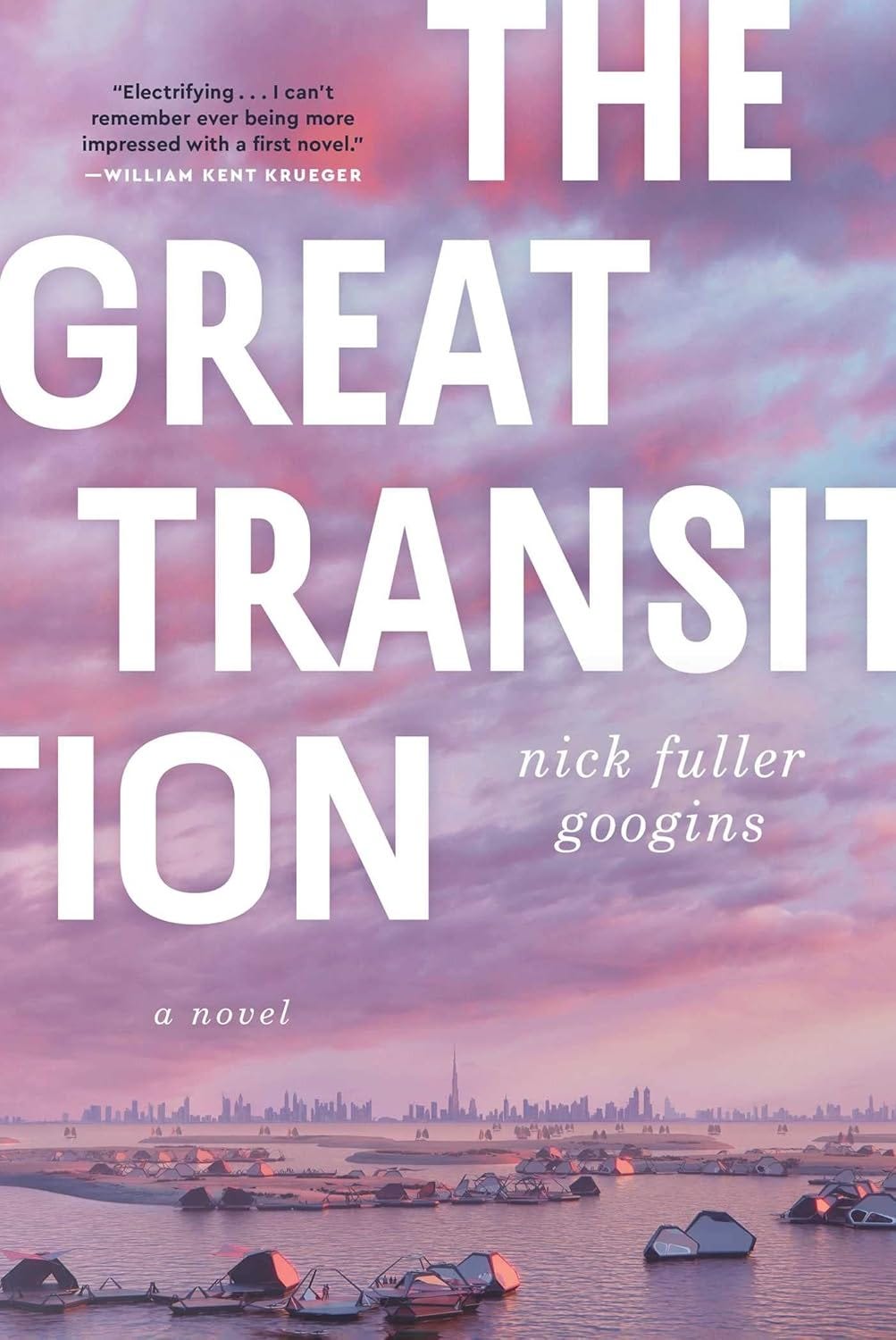It’s almost 2025 and I’ve got cold feet
Oh, and I finally finished part 3 of the story behind the Caltech anthology!
Dear readers,
Yes, my feet are literally cold, but also figuratively. A couple of things are about to change in my life, and I’m not sure I’m ready for them. But first, I want to mention that I have finally finished the third and final part of the story behind Caltech’s first science fiction anthology, which you can read here. (The first two parts of this story are linked within that post, in case you missed them.) Part 3 covers how we marketed the book, including the events we planned and the media channels we used.
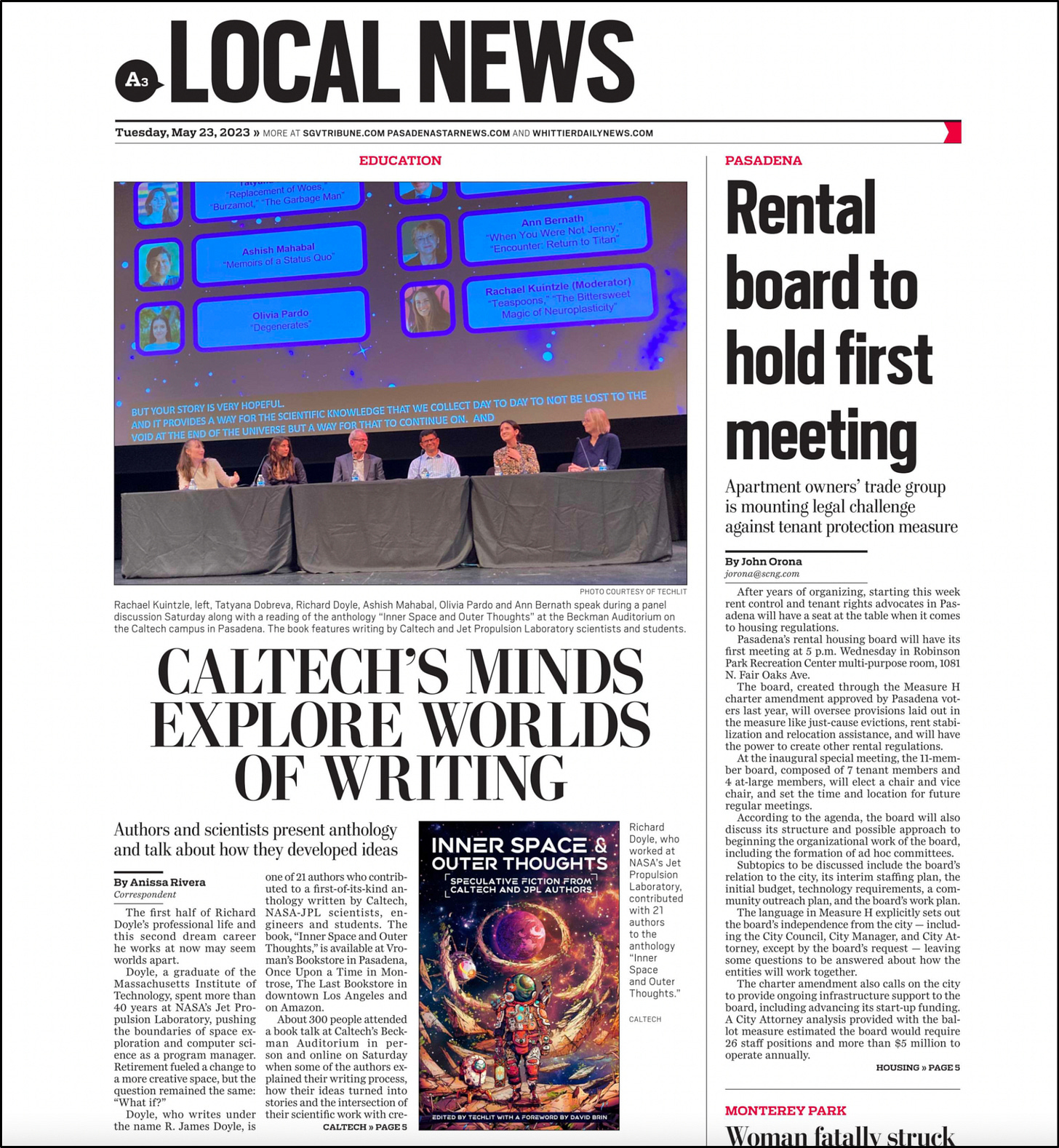
Okay, so here’s what’s coming for me in 2025…
Re-entering the world of education
In January 2025, I’ll begin substitute teaching 1-2 days per week, reserving the rest of my days to continue writing. Here’s why I’m making this change:
To begin a writing career is to start a small business, and I’m still in the stage of product creation. I’ve been writing full-time for over a year, and now that I’ve finished one novel (which is now being edited) and started a second, I’m ready to dedicate some time to generating a small stream of income that I can invest in professional development and, eventually, book production. (Shout out to my wonderful partner who has been providing for our basic needs during this time, and without whose encouragement I would not have had the audacity to chase my dream like this.)
I want to reconnect with the age group I’m writing about and writing for. As a young adult (YA) fiction author, my main connection to teens in recent years has been TikTok and my own diary entries—and I was a very weird kid. A lot has changed in youth culture and psychology, and I want to get my thumb on that pulse in a more direct way.
I’ve chosen to sub at the middle/high school levels instead of pursuing lecturing gigs at the college level not only because of the age group but because subbing is more flexible (I can work on days I want to and not on days I don’t).
I’ve done substitute teaching in the past, right after college, so I do understand what I’m getting myself into. Sadly, I don’t have any photos to share from that period because the phone I was using broke and my photos weren’t backed up. However, since I am a meticulous journaler, I do have a few diary excerpts to share:
11/30/12: Now that I’m making a little money, I’ve moved into my very own apartment! It’s amazing to have a place all to myself for the first time. I’m substitute teaching and writing and living it up.
3/25/13: Today when I was subbing for [redacted]’s math class, a student complained, "Why can't we ever have a sub that doesn't know how to teach math?"
Some context for this next one: from September to October 2012 I served as a long-term substitute for five biology and physical sciences classes at Paradise High School in California. The following Spring I wrote,
5/16/13: I really miss teaching my own class :( a lot. This cool, light morning reminds me of last semester, and I know I need to be a teacher or professor eventually. Also, I ran into two of my old physical science students today and they told me how much they wish I was still their teacher...
I have decided to try to get a biochem PhD.
I know I’m going to enjoy meeting lots of kids and engaging them on the topics they’re learning about, but I’m also nervous about the early months when I haven’t had a chance to build rapport with the students and earn their respect. As I’m sure you all know, teens can be conniving. For example, in one of those physical science classes I substitute taught at Paradise High, a few students figured out they could fluster me and derail the lesson if they gave me lots of compliments. And I’ve been warned that at one school I’ll be teaching at here in Denver, the middle schoolers think it’s HILARIOUS to secretly swap names with each other. At least I’ll know what’s going on if I hear someone giggle whenever I call on them.
The official exit from scientific research
The other change feels much bigger than it is. I technically have continued to do a small amount of research this year, finishing revisions for the scientific paper about my PhD research. Version 1 of this paper has been published for over a year now, but my research journey will be well and truly at an end once that “Version of Record” stamp pops up on the publication. As of yesterday, I have finished submitting all the odds and ends needed to earn that stamp. So, in January or Feb, I’ll finally be ready to write up a post here on what my research project was all about, plus my decision to transition out of research and all the feelings that has come with. Stay tuned, and make sure to subscribe if you want to hear about that.
In the meantime…
I’m hunkering down for a few more weeks of blissfully unlimited writing time, plus lots of good food and quality hangs with family and friends.
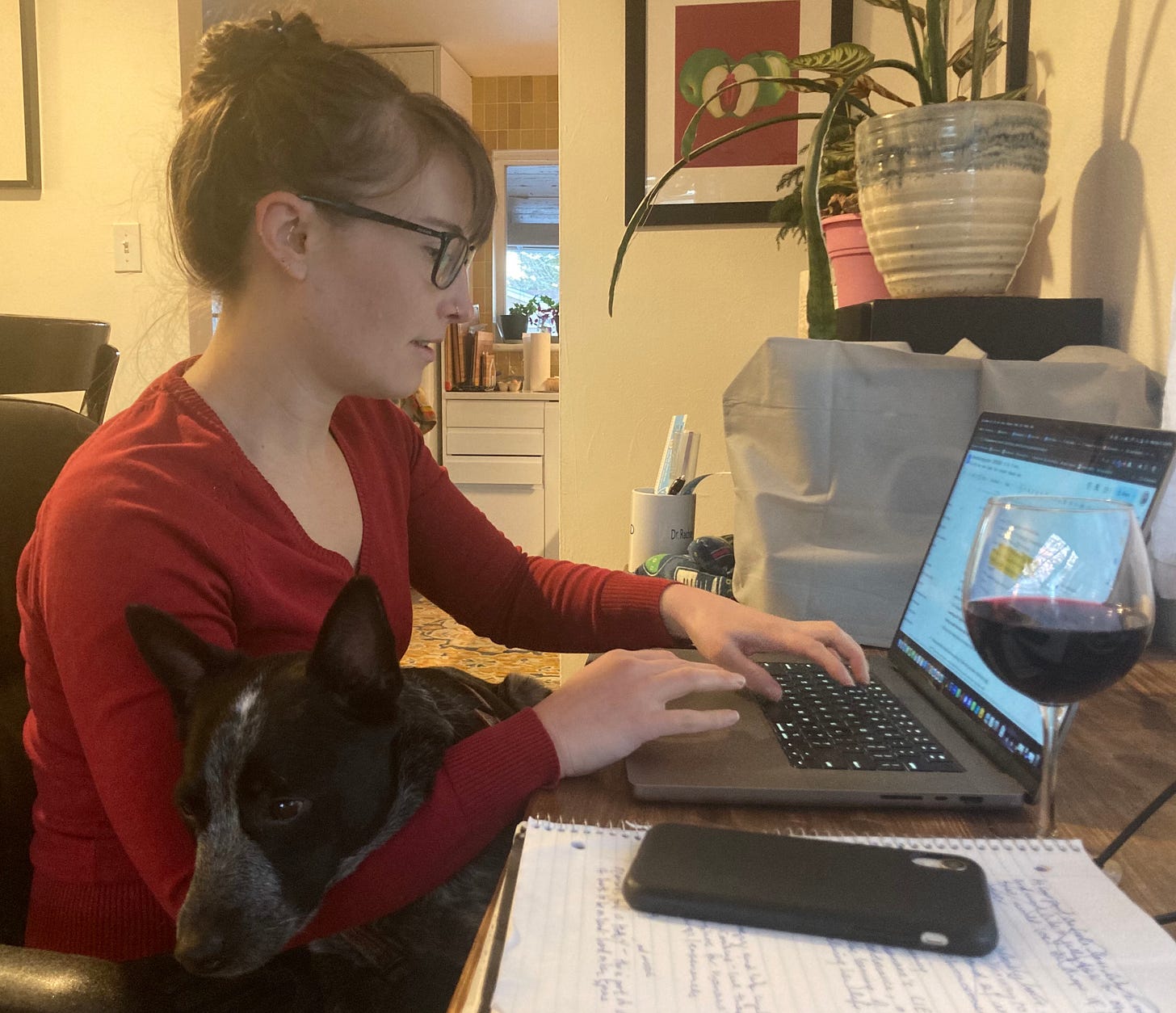
I’ll also be working on a few gifts I’m making, which are mostly crochet and knitting projects that I cannot yet describe here because the recipients read this newsletter. I’m looking forward to listening to lots of books and podcasts as I finish these projects.
If you’re looking for something to read over the holidays, consider picking something from this list of hopeful climate fiction (and nonfiction) from Bright Green Futures. A couple that I recently read and could talk about all day are The Great Transition by Nick Fuller Googins (a novel) and The Light Eaters by Zoë Schlanger (nonfic).
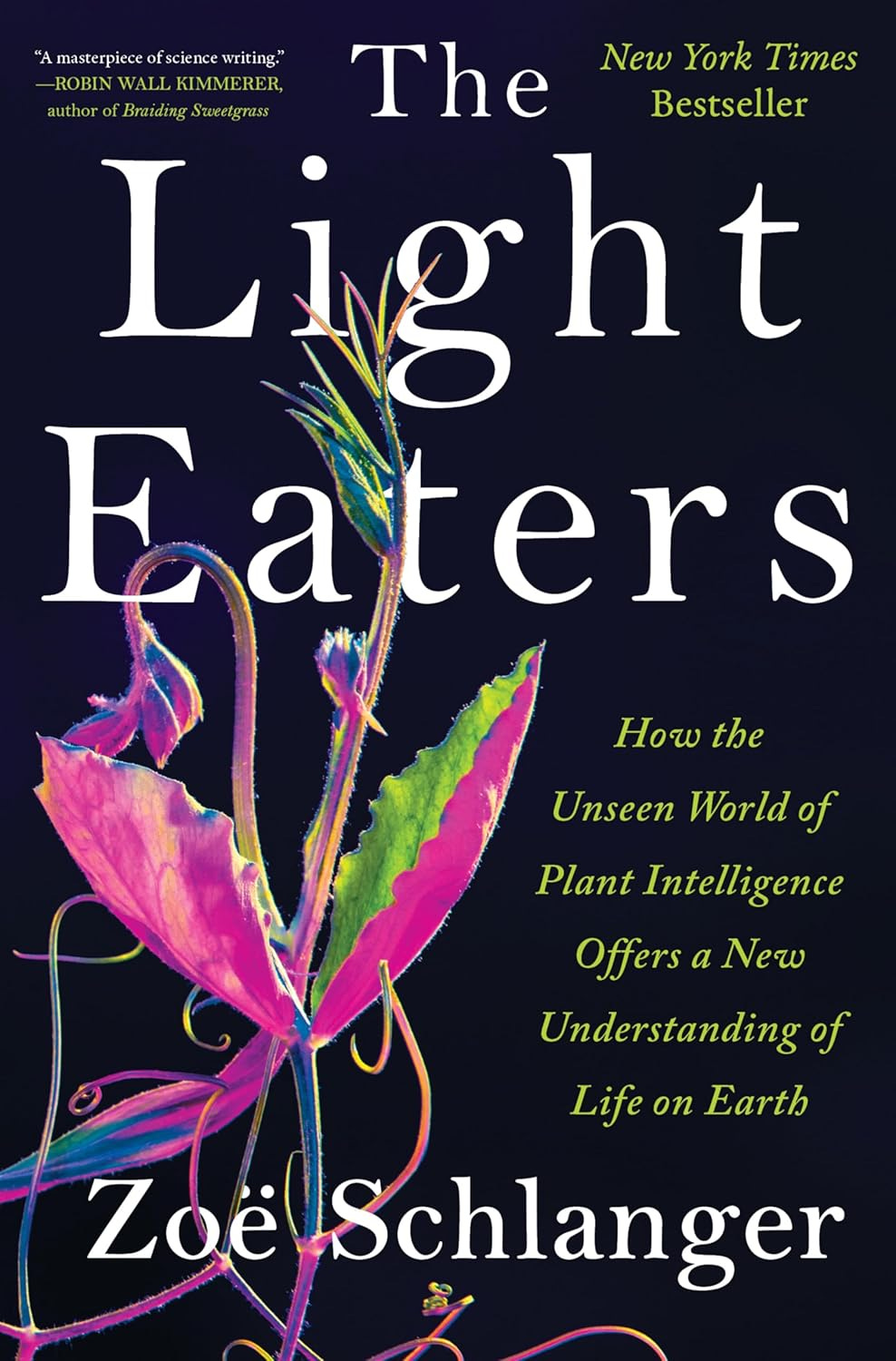
One more reading rec: my writing partner, Sam Clamons, recently published an article in Imaginary Papers—the newsletter about science fiction worldbuilding and futures thinking from Arizona State University’s Center for Science and the Imagination. In this article, Sam compares the utopian cryptoeconomic vision in Greg Egan’s 1997 novel Diaspora with the blockchain of today. Here’s an excerpt :
DIASPORA’s utopia is also a lifeboat for a strain of techno-idealism whose modern incarnation in the form of blockchain technology seems to have somewhat lost its way. It reminds us that there is a goal to the “code is law” ethos beyond shady speculative finance and memecoins—one that still might be worth trying to achieve.
Wishing you all a wonderful holiday!
Love,
Rachael




